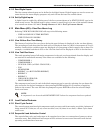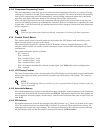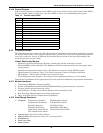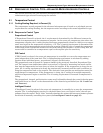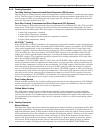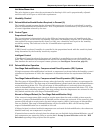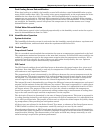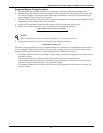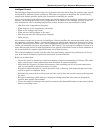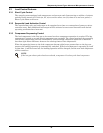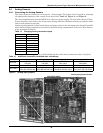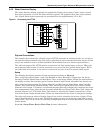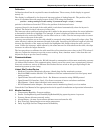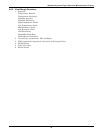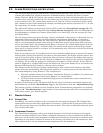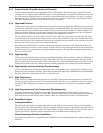
Response by Control Type—Advanced Microprocessor Controls
38
Intelligent Control
The Intelligent Control operates from a set of general rules that define how the control output should
be adjusted for different system conditions. The rules are designed to duplicate the actions that an
experienced human operator would take if manually controlling the system.
Just as an operator might take several things into consideration before making a temperature control
decision, the Intelligent Control can be programmed to do likewise. For example, not only is the cur-
rent temperature used in making temperature control decisions, but also conditions such as:
• How fast is the temperature changing?
• What direction is the temperature changing?
• What is the cooling output now?
• What was the cooling output in the past?
• How long ago was the cooling output changed?
•Other factors.
Any number of rules can be used in an Intelligent Control to define the controls operation under vari-
ous operating conditions. Hence, several advantages are gained from this type of control over a more
standard control approach that uses a fixed mathematical equation to define the operation of the con-
trol for all conditions (such as a proportional or PID Control). You can expect Intelligent Control to be
more efficient and precise for most applications, but system performance based on room conditions is
not as predictable as standard approaches that use a fixed equation.
The Liebert Intelligent Control includes rules that significantly enhance the performance of the sys-
tem, both from a standpoint of precision control and system reliability.
Rules are included that:
• Cause the control to ignore very small or temporary temperature/humidity deviations. This elimi-
nates unnecessary control adjustments that contribute to control instability.
• Help limit the frequency of control adjustments, thus extending the life of system components
that are susceptible to mechanical wear or cycling.
• Recognize undesired modes of control operation, such as hunting, and make adjustments to the
control response to eliminate them.
• Estimate the present load on the system and then tend to force the control output to the appropri-
ate state
• Recognize conditions which indicate a large load change and allow the control to temporarily
respond more quickly than normal.
• Cause the control to anticipate the need for reheat during dehumidification and activates reheats
before overcooling occurs.



